Originally published on charitywater.org.
The travel journals
The charity: water creative trip to Sierra Leone was scheduled for 14 days. During those 14 days, I would take eight flights, three ferries, and drive more than 400 miles. Along the way, I would interview 30+ people across four different communities. And, I would journal — almost every single night. (I missed one. One!)
I was asked to write these entries for charity: water’s monthly donor community, The Spring. It was our way of inviting them to travel with us sans the plane ticket. I was daunted by the scope at first, but I came to love the ritual. It was clarifying, therapeutic, and freeing, too. There was no time to overthink, only write.
I’ll admit that I’ve had to talk myself out of rewriting a few entries. In retrospect, there are paragraphs I would tighten and phrases I would reword. But I’m letting them be. The entries are candid, vulnerable, and in my opinion, the best example of my unfiltered writing style. Everything you’re about to read is completely off the cuff.
I hope you enjoy joining me for the journey.
-
P.S. Not sure where to start? Day 10 is one of my favorite entries.
P.P.S. You’ll notice my phone in most photos. That’s how I take notes during interviews!

-
I am not, by nature, a procrastinator. But if there’s one thing that I will delay, drag out, and dread for days, it’s packing.
It doesn’t matter where I’m going, how long I’m gone, or who I’ll see — packing has always been my kryptonite.
Right now, my mind sounds something like this:
“Did I pack enough socks? What about underwear? Count them again! Do I have every charger, cable, and cord I could possibly need? What about a headlamp? Will I need a headlamp … in case the electricity goes out? Snacks! Don’t forget the snacks. And double what you have. For good measure … “
The cause for my extra-scrambled brain, however, is going to be well worth the packing anxiety. And I have a feeling you’ll be excited about this too …
Myself and four of my fabulous teammates are headed to Sierra Leone, and we’re taking you, dear Spring member, along with us!
Our goal is to invite you behind the scenes and give you fresh-from-the-field perspectives. We want you to feel like you’re along for the four-hour, minimum-maintenance road car ride. Or next to us as we hike to an old water source. Or sitting nearby with a notebook in hand as we interview people whose lives have changed forever thanks to clean water — and thanks to you.
If you’re up for it, this is your formal invitation to follow along. But let me give you a fair warning: these updates may be a little less polished than you’re used to. We’re going for real-time and real-life. We might write you a paragraph one-day and upload a video the next. We might have to skip a day entirely if the power and wifi go out. But that’s the joy of charity: water creative travel: You’re always pivoting, always in the moment, always present, and always having the time of your life.
I hope you’ll join us. I just know that there’s an adventure ahead.
-
Lack of control. I think that’s what bothers people the most about traveling. There’s only so much you can do — you are ultimately at the mercy of the weather, the gate agent, the pilot, the kindness of your fellow passengers, and the inner workings of the mechanical bits of the airplane that you’d rather not fully understand. You can’t dictate any of those things. You are subject to their whims and their fluctuations — only in control of your own emotions, reactions, and yourself.
And yet, this is what I love most about traveling. Please, let me hand over the reins. In this one instance only, I will willingly hand over the controls in exchange for a plastic cup of ginger ale and a Biscoff cookie.
In case any of us had forgotten, we were reminded of that lack of control — the folly of best-laid plans — at the very moment we stepped up to the ticket counter. “It’s saying you already used your ticket?” The agent told us. We were, of course, confused. How could we have used a ticket for a flight that hasn’t even departed? With further digging we learned that our tickets (all but my own) had been refunded two days earlier at 7:58 a.m.
✨ Let’s pause here for an appropriate moment of panic. ✨
Thankfully, that panic was mitigated by learning that we still had our spots. Our seats had not yet been sold off. We just hadn’t paid for them yet. Supposedly.
Three phone calls and over an hour later, the situation was sorted. Our seats were once again paid for. We were on our way to Sierra Leone again. Sort of. Turns out we were also at the wrong terminal. So with four re-purchased tickets in hand, another ride on the AirTrain, and an hour and a half later — then we were on our way.
“This is like our travel karma,” our filmmaker, Kelly, says. “We’re paying our dues for the whole trip now.”
Join me in hoping that said karma comes through? We certainly won’t have total control, but we may have karma.
-
I am on flight 4 of 4 and just 45 minutes from the final destination.
I’ll admit, the four-flight marathon that didn’t sound so bad at first is starting to catch up to me. And no matter how many methods I try, I can’t seem to get real sleep while flying. So we’re teetering in that strange dream-like state of being awake … but being awake for nearly 30 hours. Caffeine is carrying me through, but my conversational skills are taking a hit. It took me a full second to realize the stewardess was asking me if chicken was okay for my plane meal. Granted, she spoke in French, so I’ll give myself some grace, but by the time my brain caught up, she had already handed it to me without confirmation. I gently asked stewardess #2 if it was possible to switch to pasta.
Still, I can feel the adrenaline starting to kick in. In just a few hours, we’ll meet up with our local partners. In just a day, we’ll be on our way to visit a community that has access to clean water thanks to generosity like yours. I can’t wait to meet everyone and hear their stories. When I rest my eyes (because again, actual sleep is elusive), I rehearse interview questions in my head. At the same time, I remind myself that there’s only so much prep I/we can do. The most important thing we can do is listen. Really listen. Stay in the moment, stay present, listen with intentionality, trust our guts. If we can do that as a team, the stories will find us. And most importantly, the people telling us their stories will feel heard, cared for, and understood.
32 minutes ‘til touchdown …
-
The boat rocks enthusiastically in the waves as two men try to offer stability. They stand on either side of the ferry’s entry — a hinged half-door that is currently swung open. A relay of people and luggage makes its way aboard. We arrived here from the airport, and once we cross Tagrin Bay, a short car ride will take us to the hotel. We're nearly there ...
As I step off of the concrete platform and onto the fiberglass floor of the boat, I take in the blue-light-soaked interior. Six sections of padded booths fill the space. The captain is up front, with another man near his side who eventually takes his place at the very front of the bow. From the stainless steel bars along the ceiling swing bright orange life vests. A man starts pulling them down and handing them out. I slip one over my head, wrap the strap around my middle, and buckle it firmly. It’s a bit damp and definitely musty, but at least we’ll float if the worst happens.
As we take off, the half-hinged door is swung firmly closed — forming a large, open window-like space. About 10 minutes into the trip a member of the crew “pssts” at me and points to the seat on the opposite side of the aisle. We need to balance the weight, he explains, and asks another passenger to move as well. I’m now directly next to the window, my bag on the seat next to me, my arm draped across it. The breeze is cool and welcoming in the still-humid evening air, and as we crash over waves, the occasional sea spray offers added relief.
From the seat behind me, my coworker taps me on the shoulder, “24 hours ago we were eating breakfast at the hotel.” I shake my head and laugh at the realization. What a difference 24 hours and a few flights can make.
As the lights of homes along the coast and high on the surrounding hills start to flicker into view, I feel my breathing slow involuntarily. I feel strangely calm. Content. Excited, but measured. It’s one of those rare, fleeting moments where you feel — without any doubt — that you are exactly where you are supposed to be.
-
After four flights, a ferry, and two car rides, I will admit that my thoughts currently mirror the view I had from the passenger seat of today’s Land Cruiser: swirling, whirling, and a blurry blend of colors, language, and names. I would detail it all for you, but tomorrow the real work begins — we visit our first community alongside our local partners! So tonight, I’m choosing sleep.
Sweetest of dreams!
-
I love when a group of women get together. You can sense the camaraderie and the understanding. When it comes to collecting water, they all know exactly what one another is going through.
You can also tell how strong they are. How smart. How capable. How funny. Mariama Jr., a woman in a striking royal blue dress with a presence about her, was described as a jokester. I asked if she would tell us a joke. She deflected saying she wouldn’t tell a joke, but she would sing a song and dance with me.
She cued the other women to start singing and up we stood, swinging our arms, swaying our hips, clapping along to the beat that another woman created with an instrument that I believe is called a shekere. (I will confirm this tomorrow.) One woman, also named Mariama, motions that my arm-swinging needs to be bigger, more enthusiastic. Like this, she seems to say, and demonstrates from her chair before joining in herself.
For a full 30 seconds, it's pure joy. Our team is surrounded by lush jungle, dripping from the humidity, and a little jet lagged, but we have a beat, a song, a dance, and new friends.
It doesn’t get better than this.
-
After spending two and a half days in the community with clean water, it’s time for us to say goodbye. The goodbyes … they’re never easy.
We say farewell by giving printed Instax photos to the people we interviewed. These new friends of ours have shared some of their hardest stories with us — and some of their most joyful, too. They have generously offered up their time, their energy, their fresh coconut water. It’s like a crash-course-bonding session. And just as quickly, an abrupt goodbye.
“Don’t forget about us here,” Mariama Sr. said after we gave her her photo. She then wrapped me into a hug.
“We absolutely won’t,” I told her.
We could never.
-
On most days, we arrive relatively early to the communities. (Tomorrow’s call-time is 6:30 a.m., for example.) But today, we opted to arrive later than usual — and for good reason. This morning, our local partner GOAL Sierra Leone facilitated a sanitation and hygiene training!
This training is a critical part of the water point building process. While access to clean water is foundational for improving hygiene and sanitation, it can only solve so many problems on its own. Clean water has to be paired with initiatives like ending open defecation, building latrines, and hand-washing for maximum impact.
It’s important work, and work that we would never want to distract from. So we gladly snagged a few extra zzz’s, rolled out of the parking lot at 8:15 a.m, and arrived just as the training wrapped up.
GOAL later explained that the community had created a sanitation map, marking the location of homes and the areas people used frequently for open defecation. They also participated in activities that illustrated the health risks of open defecation — like placing a plate of food next to a plate of feces and watching as flies flew back and forth between the two. After that, the community created an action plan for ending open defecation and building their new latrines.
Clean water, sanitation, and hygiene really is a process, but GOAL has thought through every step.
-
When Mamie gets access to clean water, she will no longer have to let the water settle before drinking it. She and her son will have water free from sediment, germs, critters, and disease.
When Kadie gets clean water, she will take a long drink. Then, she will use the clean water to cook and enjoy her favorite meal: cassava leaf.
When Vandi gets access to clean water, he won’t have to worry about his community’s health. As town chief, he will be proud to see his community thriving and happy.
The anticipation is palpable here. Everyone knows exactly how they’ll use or enjoy the clean water. Now, it just has to arrive.
-
There’s something about the horn honking as the rig pulls into town that makes us all start crying. The sound is joyous, rhythmic — an announcement that things are about to change. With only the horn, the rig’s driver seems to be saying, “We’re just as happy to be here as you are to see us!”
It’s a moment that no one will forget — certainly not the community members. It’s not every day that you get to witness a point of inflection; to know that it’s a point of inflection.
But that horn, that arrival … it marked the beginning of the end of dirty water. We had seen the before. Now, we knew there would be an after. The disease, the worms, and the germs lurking in the river had finally met their match.
Clean water had arrived. No one was going back.
-
“The solution to any problem is not to run away from it.”
- James Riak, Country Director for GOAL Sierra LeoneOne day with GOAL and you’ll see that they’re living and breathing this advice. In fact, they are constantly running toward the problem.
In rural Sierra Leone, dirt roads are often mottled with muddy potholes — some nearly as wide as the road itself. That inaccessibility is what keeps many communities from getting clean water. But a bad road is no excuse for GOAL.
“We reach the unreachable,” Patrick stated without an ounce of hesitation. GOAL will go to any length to bring a community clean water. And as soon as they reach the community, they immediately start encouraging the people who live there to improve their road. Because the sooner the road is fixed, the sooner a rig can arrive.
I will say, we were told that GOAL was a “full coverage machine” and “one of the strongest partners we have in terms of MAP results,” so our expectations were high. (Shoutout to Scott Miller, our Monitoring & Evaluation Senior Manager, for those quotes!) But seeing it in person put it all in perspective.
Being a full coverage machine in Sierra Leone is no easy task. But an easy task isn’t what GOAL is after. They’re out here to end the water crisis, and nothing is going to stand in their way.
-
As we make our way north, jungle starts to give way to farmland. The lush greenery fades into brown, baked earth and dehydrated palms fall limp in the harsh sunshine.
It feels like a fitting scene for a day of goodbyes. After a week together, we’re parting ways with our local partner GOAL. Our spirits mirror the scene whizzing by our windows — a little dull, a little less vibrant than before. We are, after all, not only saying goodbye to our partners but to new friends.
I know that there are so many good moments still waiting ahead, but I’m going to let myself spend the six-hour car ride feeling a little bit sad.
-
Friends (if you’ve read this far, we’re friends now), I’m going to be honest with you …
Due to a combination of cockroaches, 90+ degree heat, a bug net that turned into a personal sauna, and thin walls, I got very little sleep last night. Translation: I’m struggling to write an update today.
We’ll give it another whirl tomorrow. :)
-
Solving the water crisis starts with building new water points. But let me emphasize the word starts.
Building is only the beginning. Maintaining and rehabbing water points is how we’ll solve the problem long-term. That’s why we spent our last two days shadowing our maintenance partner, Inter Aide.
Thanks to their yearly preventative maintenance program, the functionality rates across Sierra Leone are improving. As part of their program, local mechanics are trained in hand pump maintenance. Those mechanics are the real heroes here.
“Even if [the hand pump] breaks down at midnight, I tell the community to call me. I will come in the morning,” Thiamu explains passionately.
Thiamu is proud to be a mechanic and proud to play a role in solving the water crisis in his country. So much so that he hopes his son will become a mechanic, too.
“This job has made me popular and a stakeholder in this chiefdom. … I see it as my responsibility to restore all water points to be functional and accurate.”
-
Were we here for two weeks, two seconds, or two years? Somehow, it seems appropriate to answer “yes” to all of the above.
There’s a part of me that isn’t ready — I don’t want to say any more goodbyes. I want to stay here, in the moment. Away from computer screens and from Slack and from the silly things that stress us out.
And yet, there’s another part of me that knows it’s time.
Back home we go …
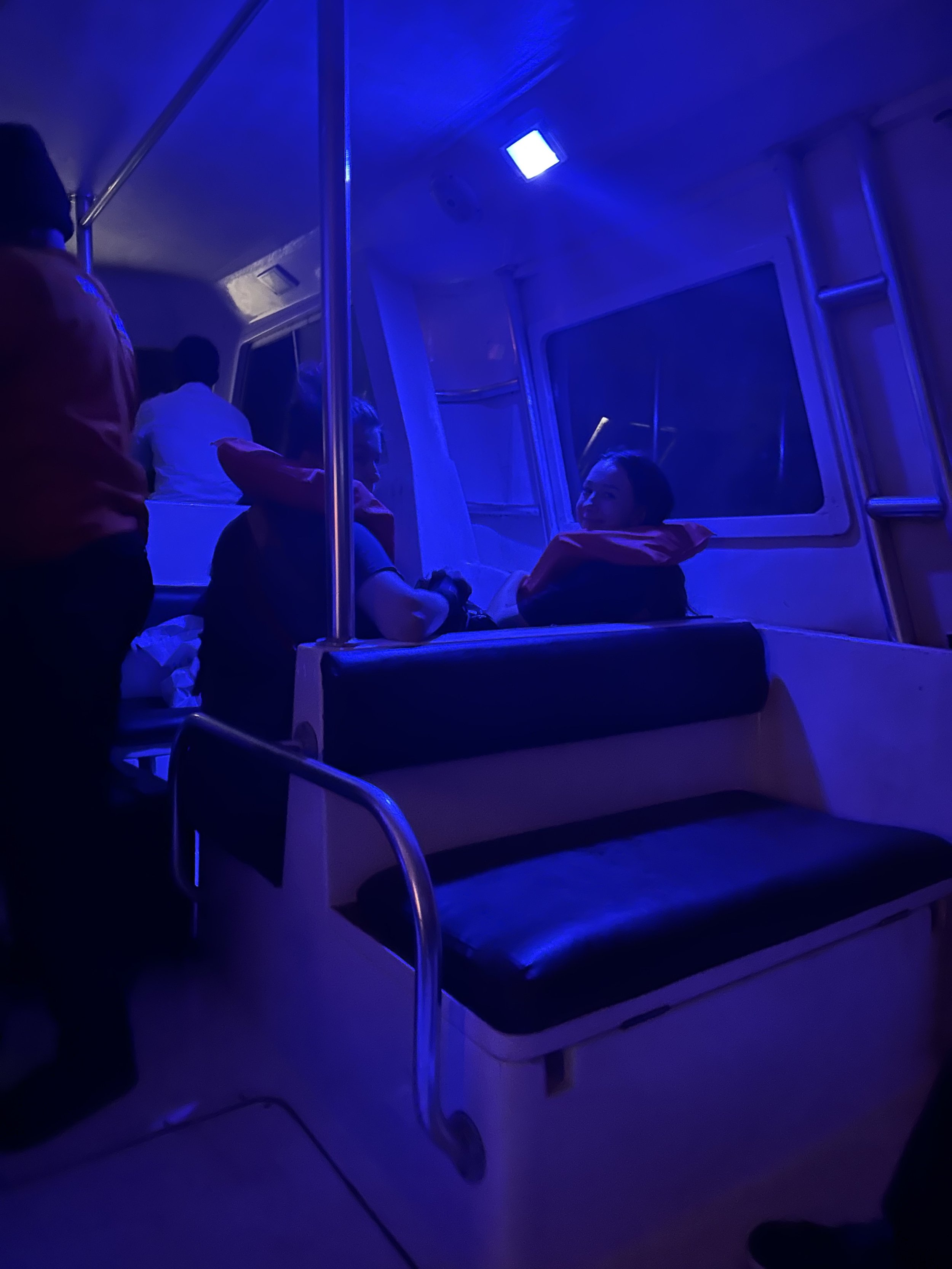
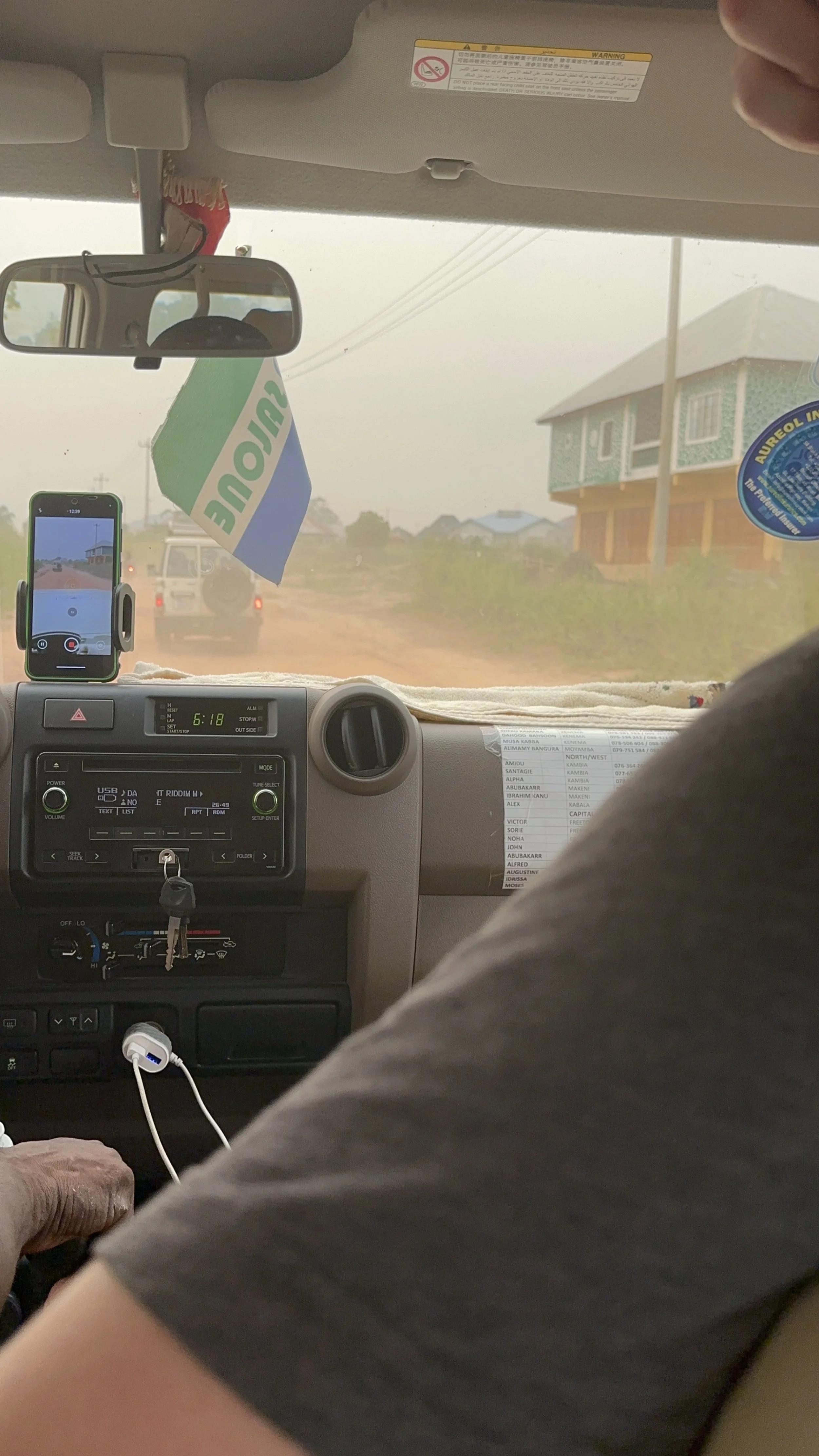
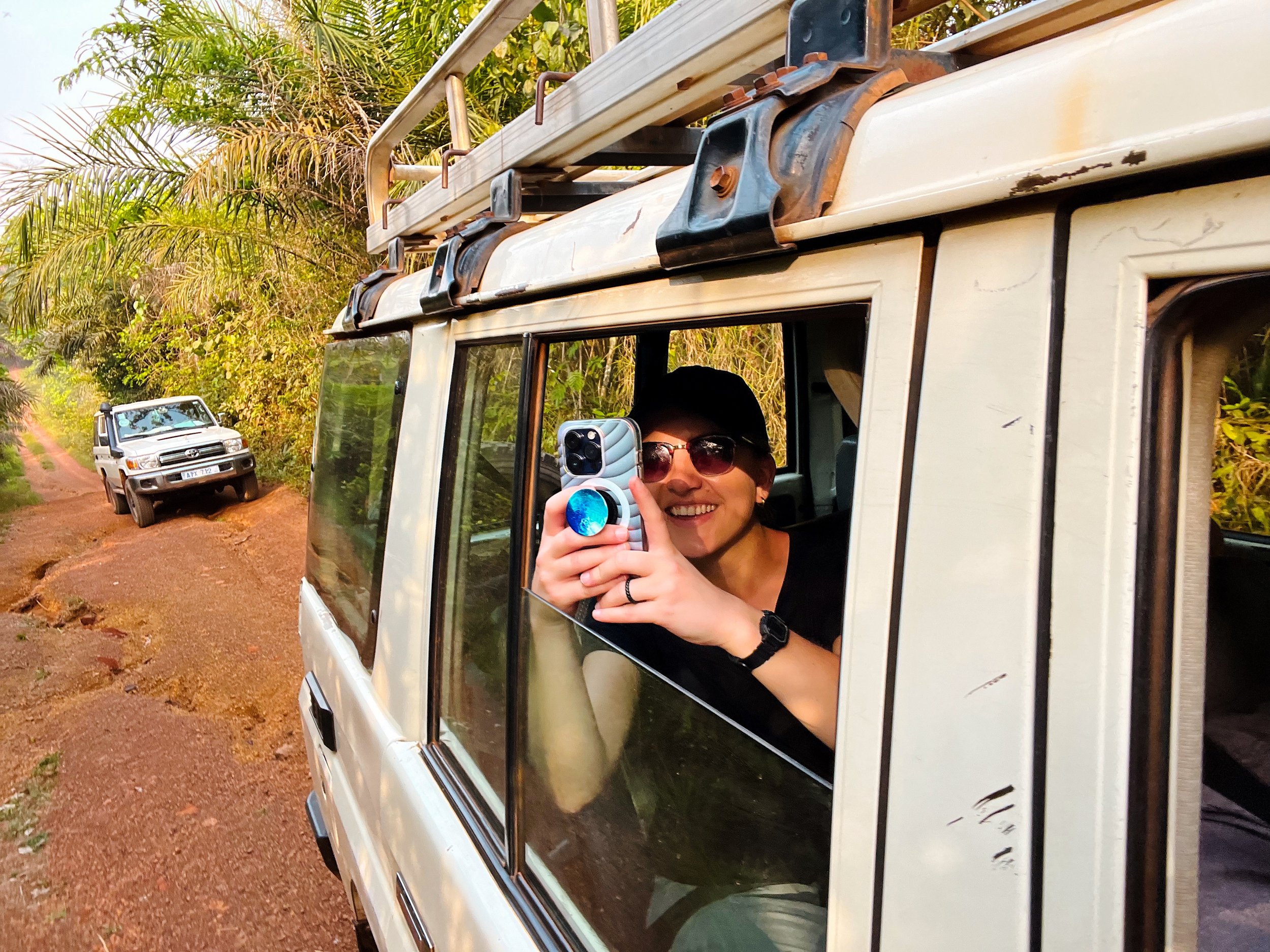


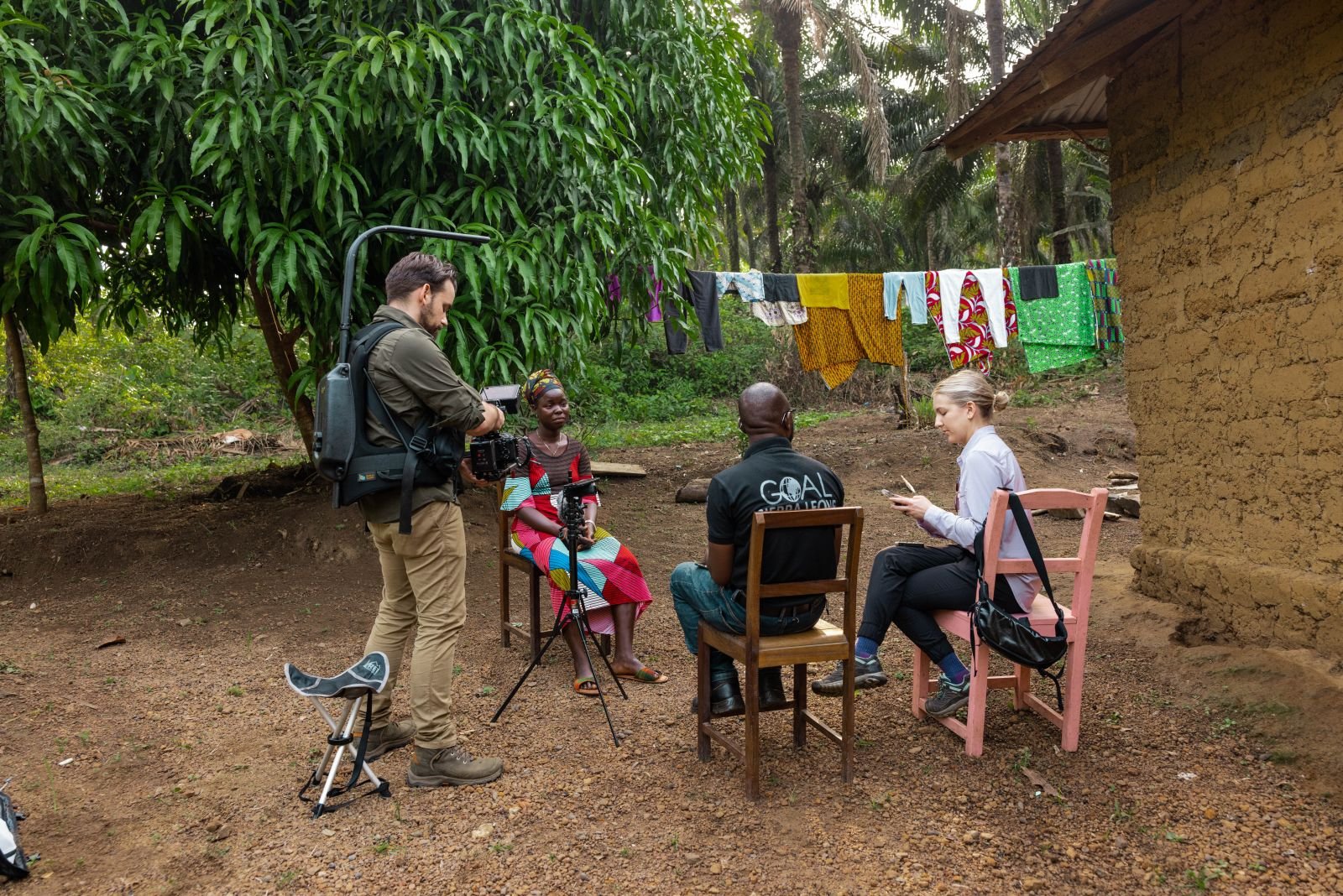



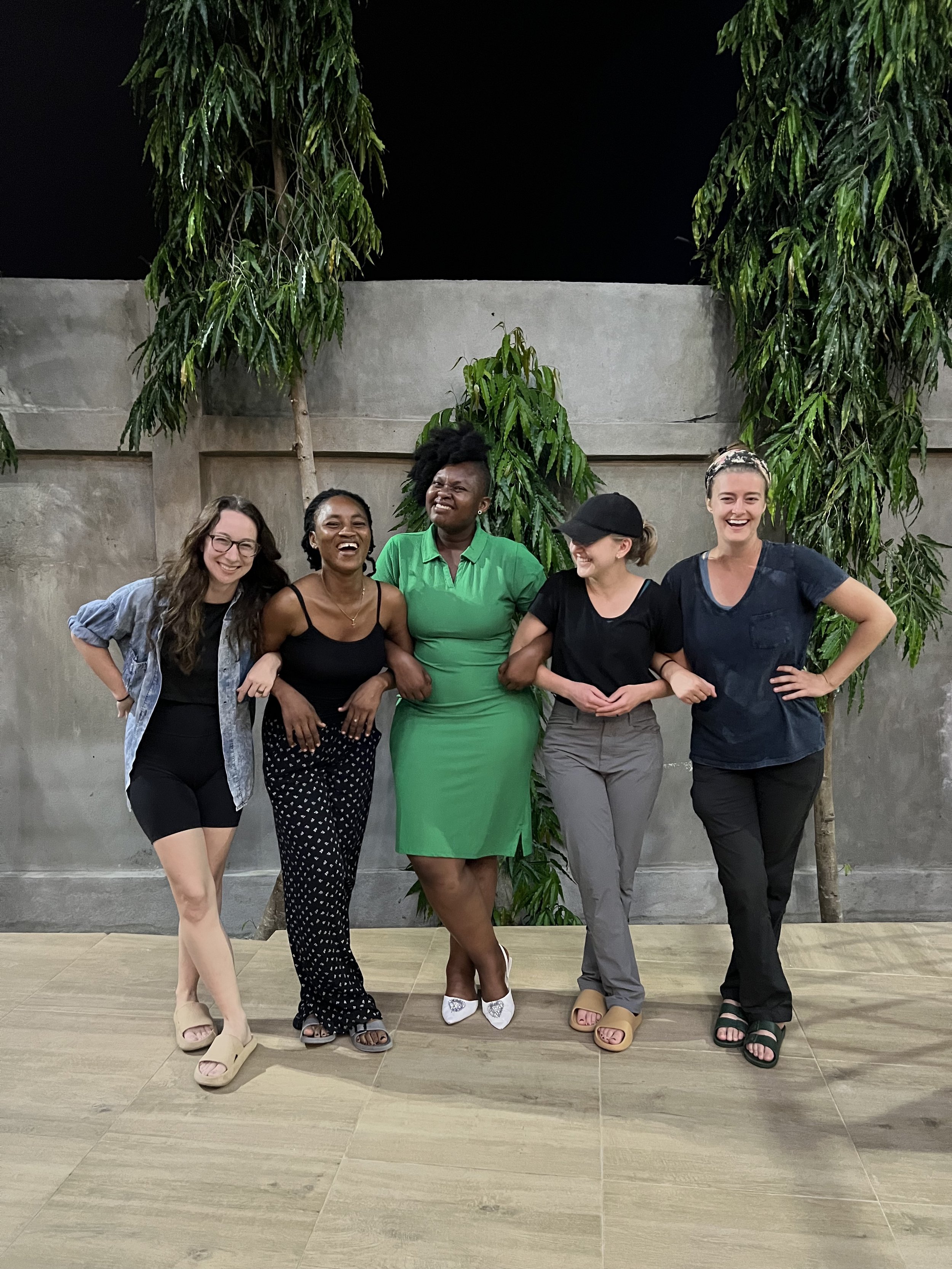
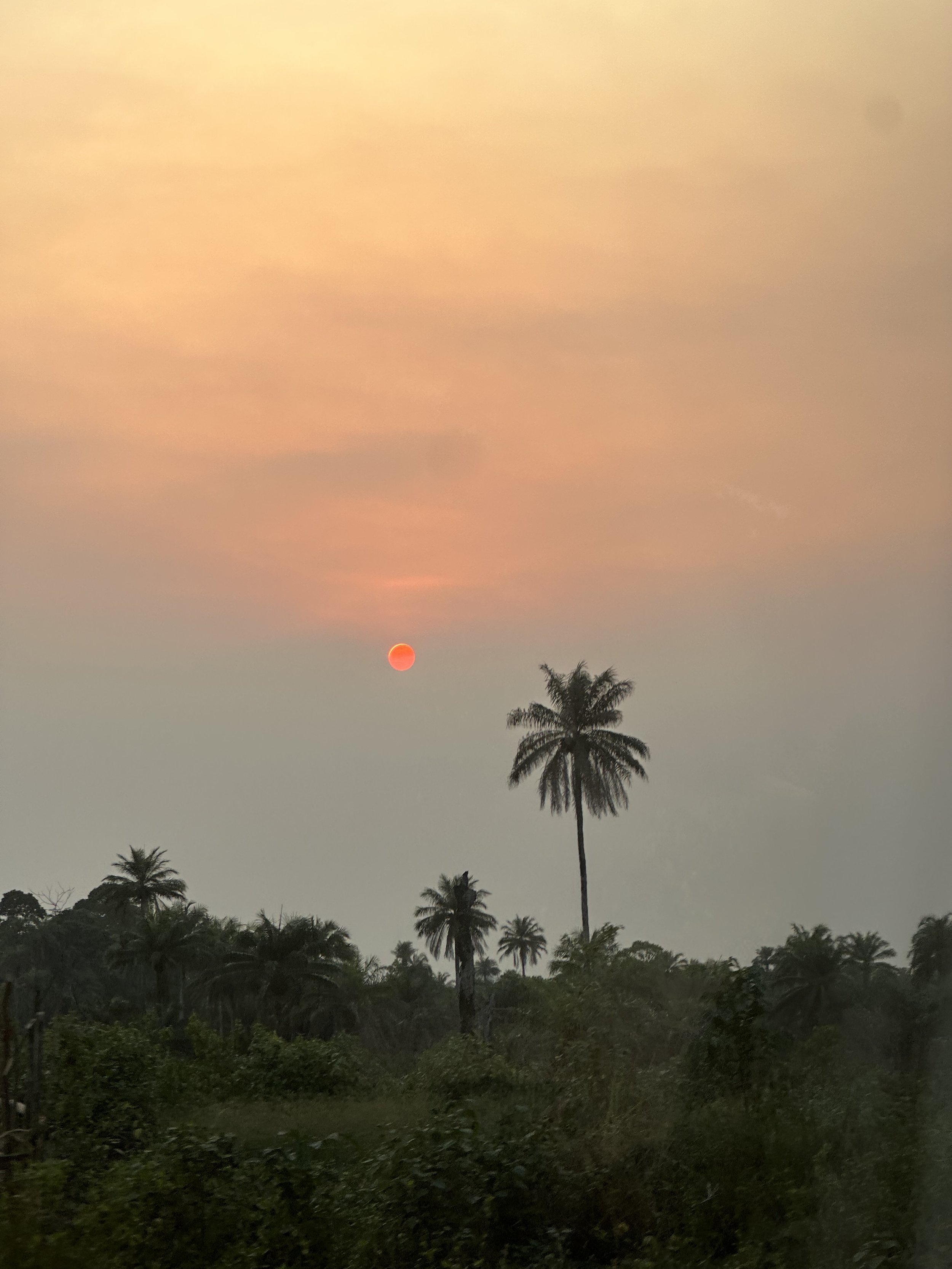



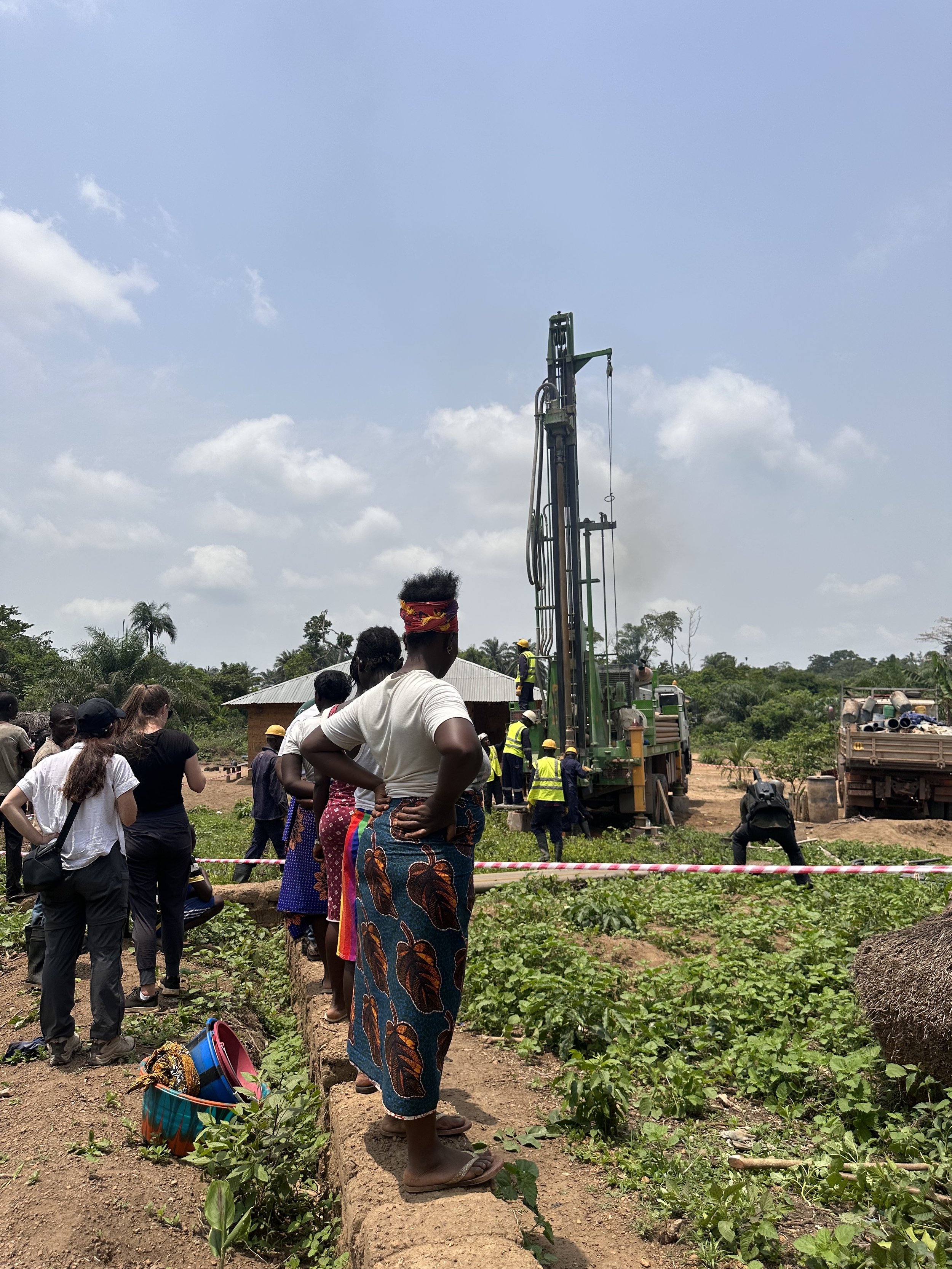

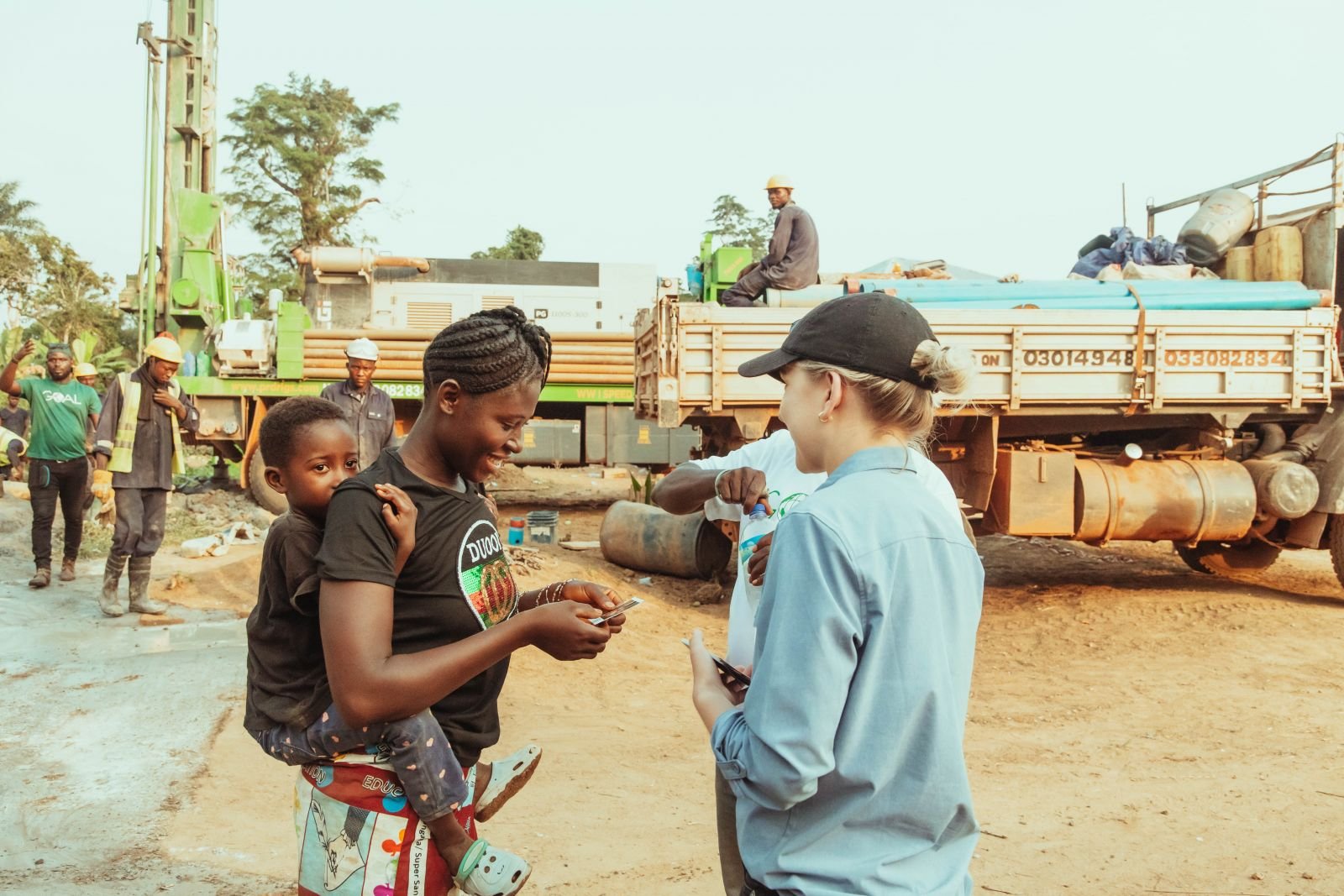

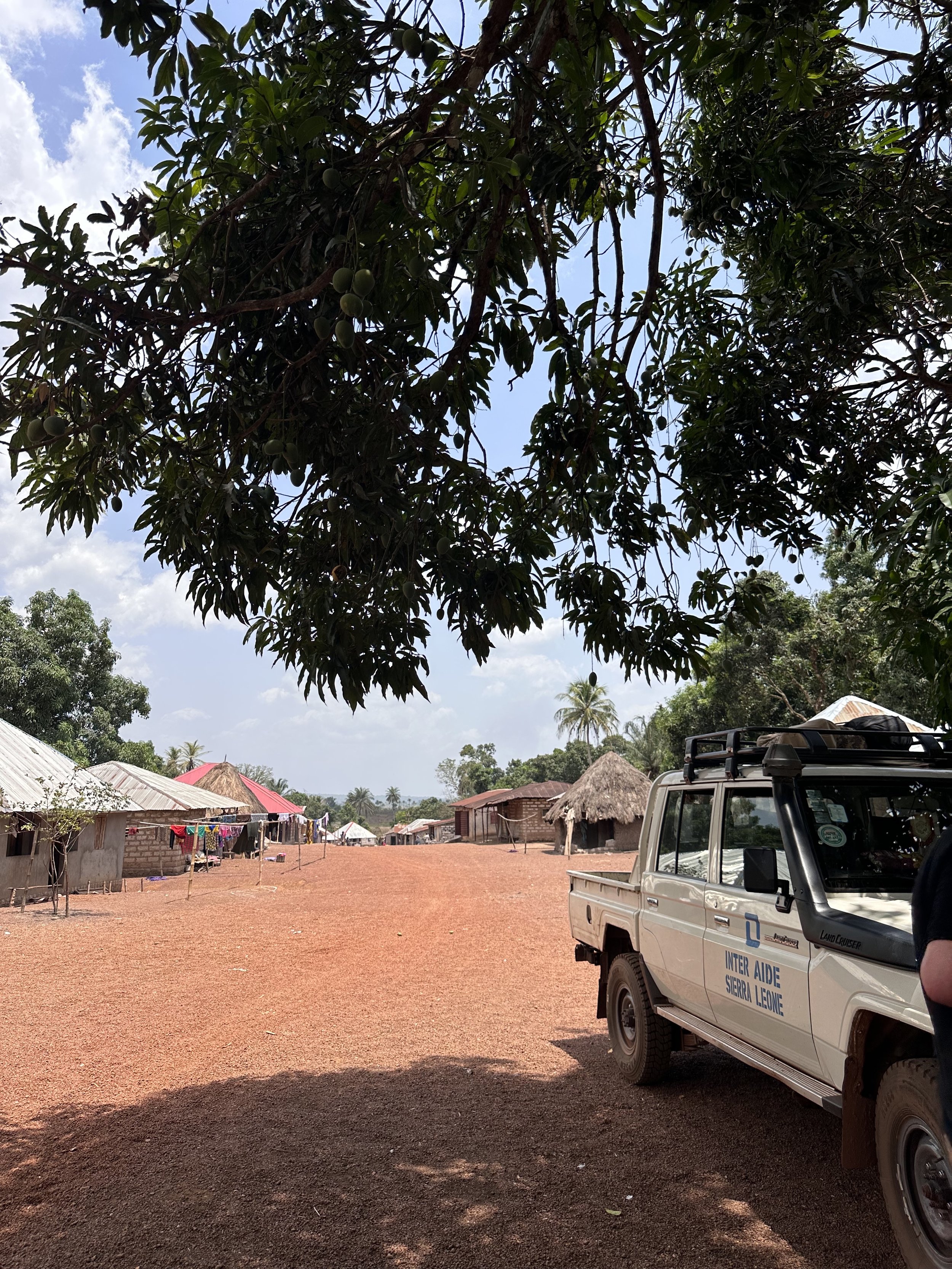

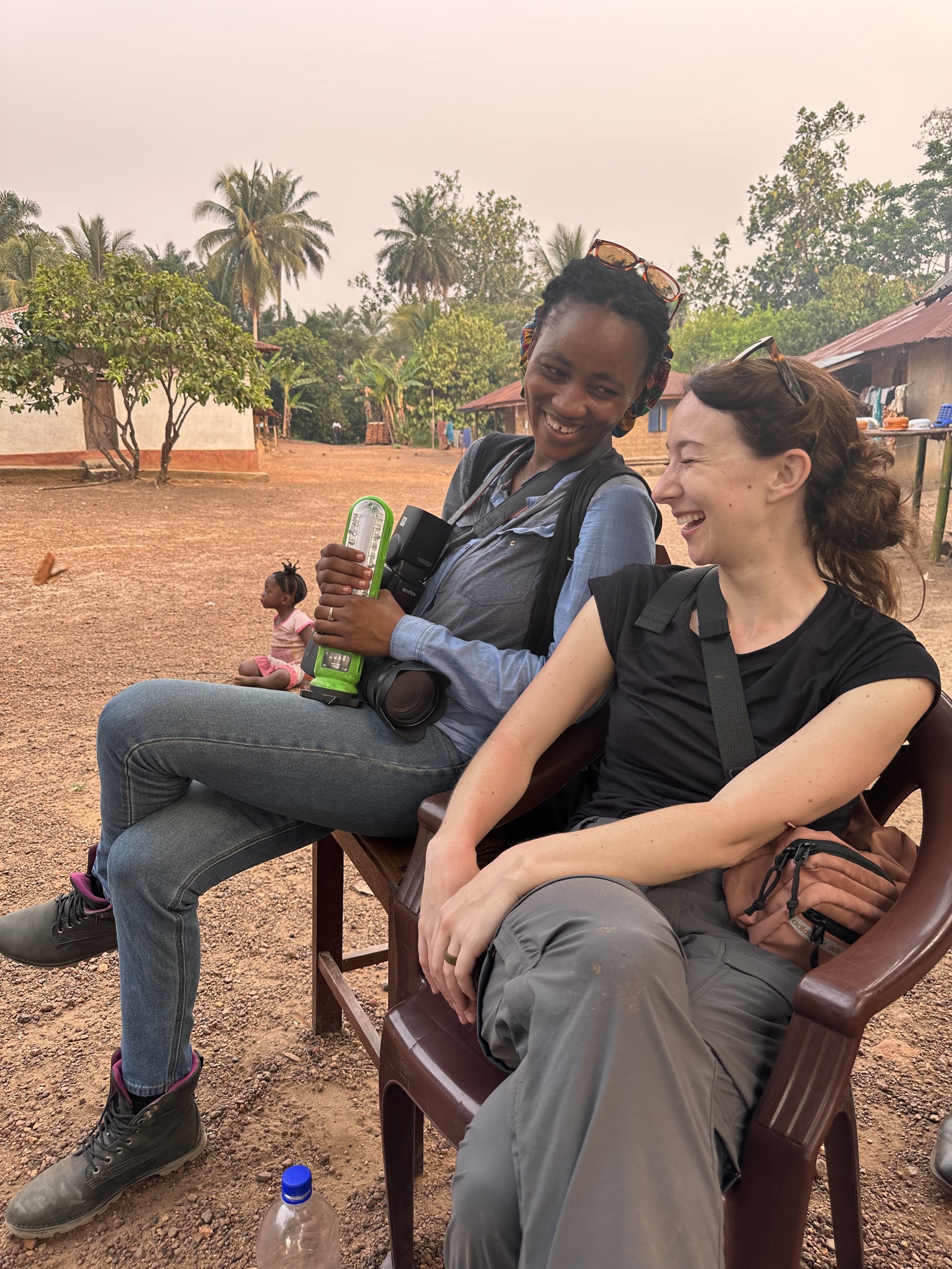
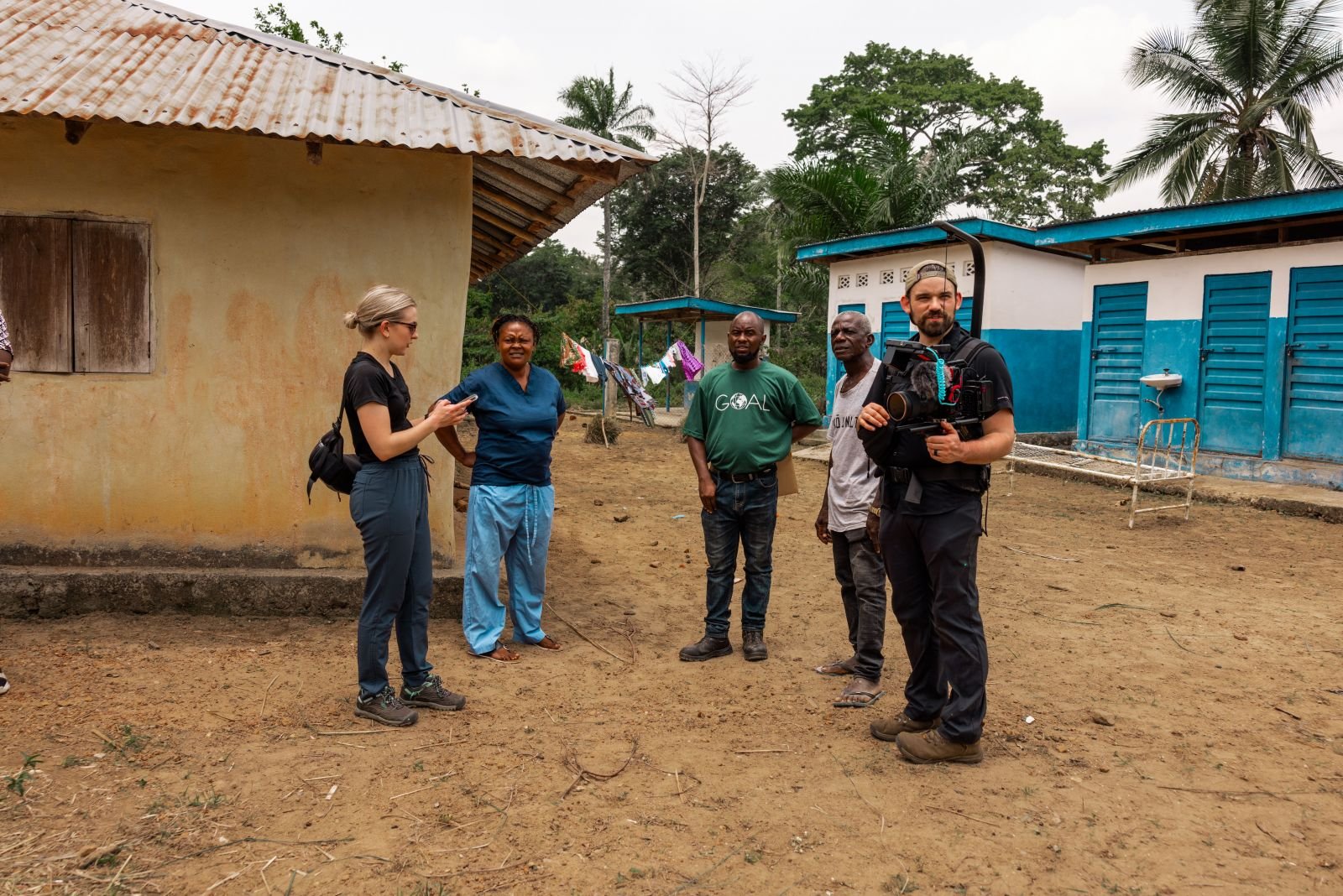

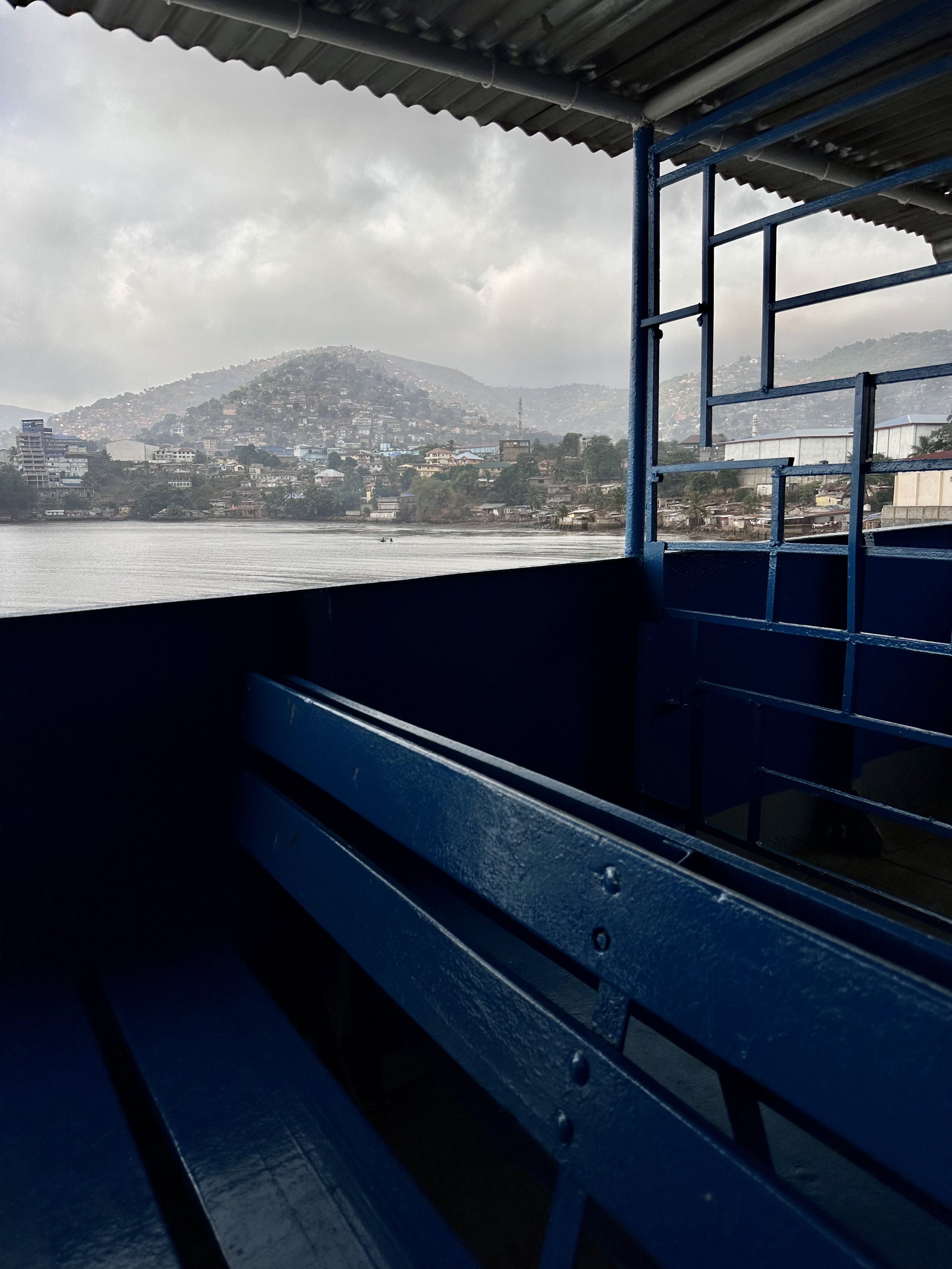
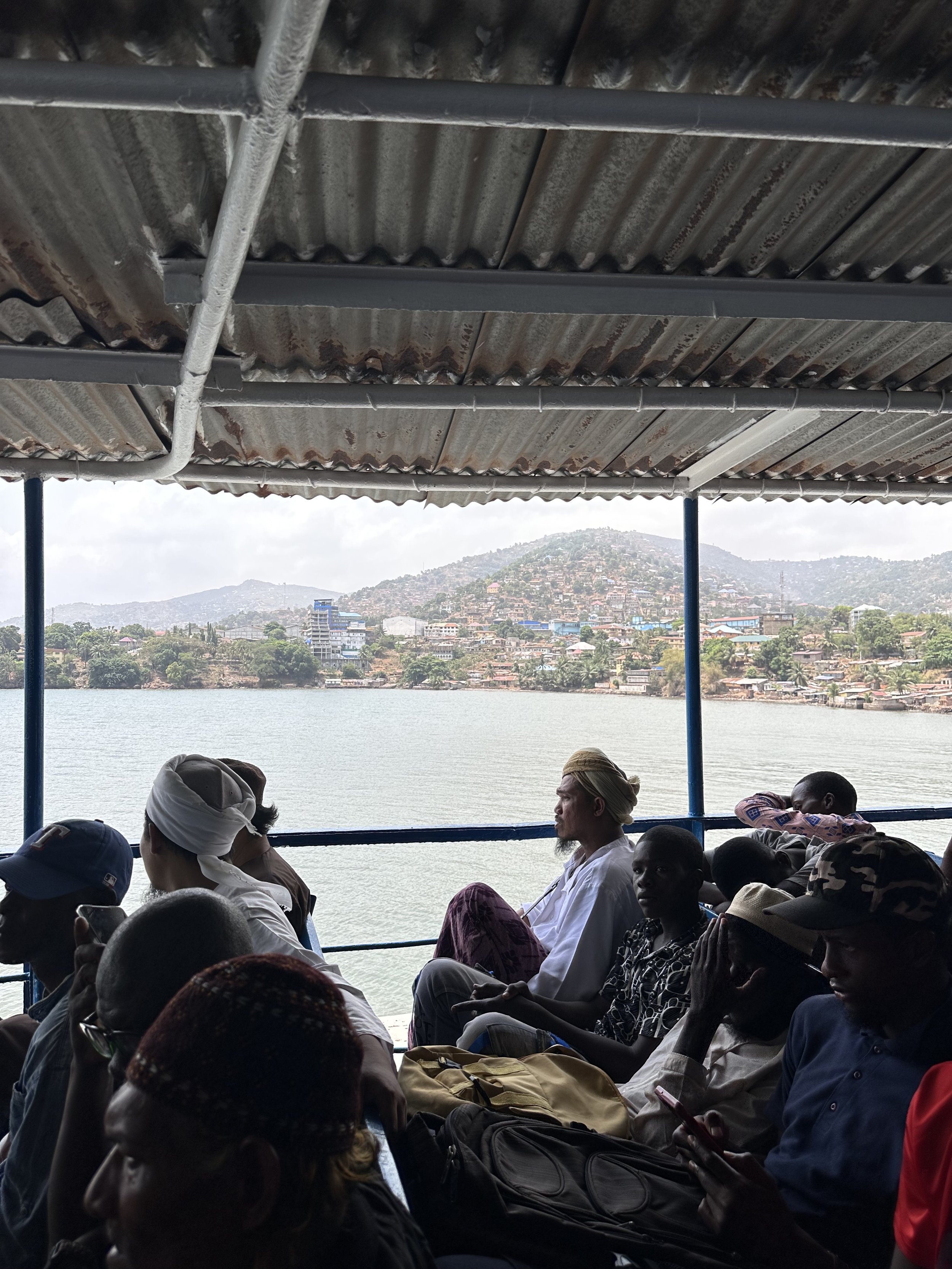


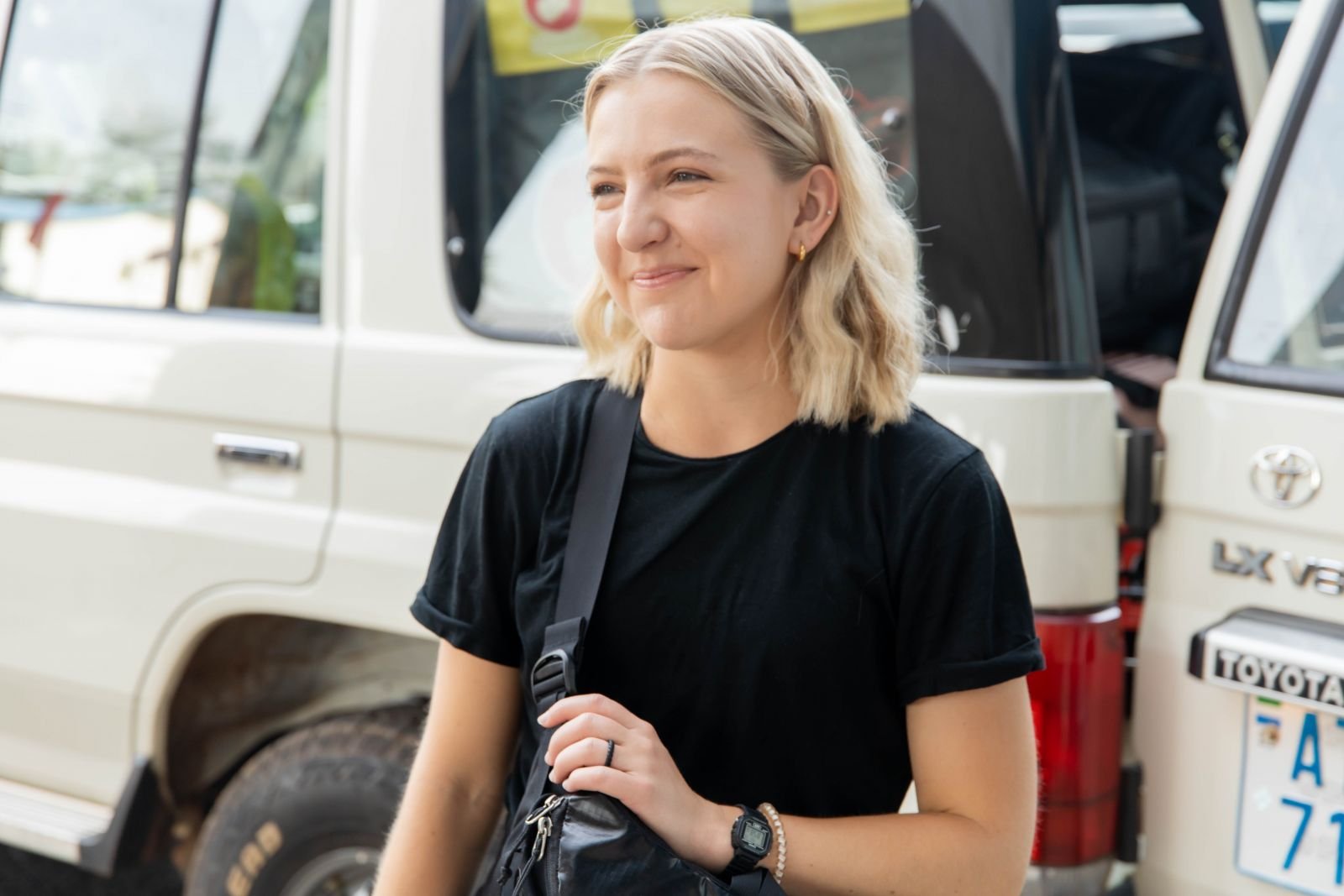
___
All photos and stories are shared with express consent from communities and individuals. Candids are courtesy of myself, Cubby Graham, and Grace Kamanda (Girls Behind The Lens).
Originally published at charitywater.org.
